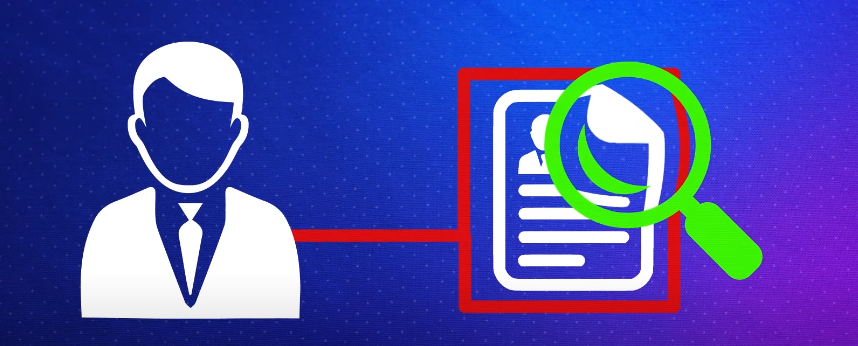Introduction
A Brief Overview Of The Importance Of Data Encryption In The Digital Age

Data encryption is a crucial element in ensuring data privacy and protection in the digital age. The increasing amount of sensitive information being exchanged online has made it more vulnerable to malicious attacks such as hacking, phishing, and identity theft. Encryption helps to secure this information by transforming it into an unreadable format that can only be deciphered using a secret key or password.
The Role Of Laws And Regulations In Ensuring Data Security
Laws and regulations play a critical role in ensuring data security. With the increasing amount of personal and sensitive information being shared online, it’s essential to have strict rules that govern how this data is collected, stored, and used. Regulations such as GDPR require businesses to implement appropriate technical and organizational measures to protect personal data from unauthorized access or theft.
Mandating the use of encryption is one-way laws can help secure sensitive data. Encryption encrypts your files or messages so that only authorized individuals can read them; it serves as an effective protective measure against cyber criminals. For example, HIPAA requires healthcare organizations to use encryption for all electronic protected health information (ePHI) transmissions.
Moreover, laws often mandate businesses and entities to report any security breaches immediately after they occur. This ensures that affected individuals are notified promptly so they can take necessary actions such as changing their passwords or monitoring their accounts for fraudulent activity.
Understanding Data Encryption
Definition And Explanation Of Data Encryption
Data encryption is the process of converting plain text into a coded message that can only be decoded by a person with the appropriate decryption key. This process ensures that sensitive information remains confidential and secure, even in the event of unauthorized access. Encryption algorithms use complex mathematical formulas to convert data into code.
There are two main types of encryption: symmetric and asymmetric. With symmetric encryption, both the sender and receiver use the same key for encrypting and decrypting messages. On the other hand, asymmetric encryption uses public and private keys to encrypt and decrypt data.
Key Concepts And Techniques Used In Data Encryption
There are several key concepts and techniques used in data encryption, including symmetric-key cryptography, asymmetric-key cryptography, and hashing.
Symmetric-key cryptography involves using the same secret key to encrypt and decrypt data. This technique is commonly used in situations where two parties need to communicate securely with one another. Asymmetric-key cryptography, on the other hand, uses a public key for encryption and a private key for decryption. This technique is more secure than symmetric-key cryptography but can be slower due to its complexity.
Hashing is another technique frequently used in data encryption that involves generating a unique fixed-length string of characters from a piece of text. The resulting hash value acts as a fingerprint for the original text and can be compared against other hashes to determine whether they match or not.
The Need for Data Encryption Laws
Data encryption laws are necessary to protect personal information such as social security numbers, bank account details, and healthcare records. This type of information can be used for identity theft and other fraudulent activities if it falls into the wrong hands. By encrypting this data, individuals can be assured that their personal information is safe from prying eyes.
In addition to protecting personal information, encryption laws also help businesses safeguard their intellectual property and trade secrets. Companies invest a lot of money in research and development to create new products or services. If this information is not properly secured with encryption technology, competitors or hackers could steal it and use it for their benefit. Therefore, complying with data encryption laws helps companies maintain a competitive edge by keeping their proprietary information confidential.
International Data Encryption Laws
Governments worldwide have implemented regulations mandating encryption to protect personal data from cyberattacks and unauthorized access. International data privacy laws such as the European Union’s General Data Protection Regulation (GDPR) and Brazil’s Lei Geral de Proteção de Dados (LGPD) require companies to implement adequate data protection measures, including encryption.
United States Data Encryption Laws
The United States has several laws that mandate data encryption to protect the privacy and security of sensitive information. One of the most notable is the Health Insurance Portability and Accountability Act (HIPAA), which requires all healthcare providers to encrypt any electronic protected health information (ePHI) they create, receive, maintain or transmit. The Gramm-Leach-Bliley Act also mandates financial institutions to implement appropriate safeguards for customer data, including encryption, while the Sarbanes-Oxley Act requires public companies and accounting firms to safeguard their financial data.
Additionally, some states have their own data protection laws that require encryption such as California’s Security Breach Notification Law (SB 1386). It mandates entities doing business in California who experience a breach of security involving personal information must notify affected customers immediately after discovering it. The law gives businesses two options when responding to a breach: either provide free credit reports for 12 months or purchase identity theft insurance for those affected.
European Union Data Encryption Laws

The European Union (EU) has been at the forefront of data protection, with multiple laws and regulations aimed at ensuring the privacy and security of personal data. The General Data Protection Regulation (GDPR) is one such law that mandates encryption of personal data to prevent unauthorized access and ensure confidentiality. GDPR applies to all companies operating within EU member states or processing the data of EU citizens regardless of their location.
In addition to GDPR, the EU also has laws that mandate sector-specific encryption practices. For instance, the Payment Services Directive 2 requires encryption for online transactions involving sensitive financial information such as credit card details. Similarly, the ePrivacy Directive mandates end-to-end encryption for electronic communications services.
EU also recognizes the importance of strong encryption in combating cybercrime and terrorism while balancing it with individual privacy rights. Despite this recognition, there have been instances where law enforcement agencies have demanded backdoor access to encrypted data on national security grounds, which raises concerns over individual privacy rights violation. Therefore, EU continues to navigate this delicate balance between national security interests and individual privacy rights concerning its data encryption laws.
China Data Encryption Laws
China has implemented strict data encryption laws to protect the privacy of its citizens. The country’s Cybersecurity Law, which took effect in 2017, requires critical information infrastructure operators (CII) to store personal data and important business data within China’s borders. This includes information on finance, healthcare, transportation, and other key industries.
Additionally, the law mandates that CII operators undergo a security review prior to purchasing any network products or services. This is intended to prevent foreign companies from gaining access to sensitive information through backdoor channels or other means. Companies found violating these regulations can face severe penalties such as fines and even a revocation of their business license.
Furthermore, China has implemented various technical measures for data encryption purposes. For example, all websites in China are required to use HTTPS encryption protocol in order to ensure secure communication between users’ browsers and the website servers. These laws showcase China’s commitment to protecting its citizens’ personal information and maintaining cybersecurity within the country’s borders.
Australia Data Encryption Laws
The Australia Data Encryption laws were introduced in 2018 as the Assistance and Access Act. This act was designed to combat terrorism, crime and espionage by allowing law enforcement agencies to request access to encrypted data on electronic devices. The legislation applies to both individuals and companies who use encryption technologies.
Under this law, tech companies must provide a “technical assistance notice” or a “technical capability notice” when requested by Australian authorities for access to encrypted messages or data. However, there has been much controversy surrounding these laws with concerns raised about privacy and civil liberties violations. Critics argue that the ability for government agencies to gain access to encrypted data could lead to abuse of power, particularly when it comes to surveillance activities.
Despite the criticism, the Australian government maintains that these laws are necessary in order to keep citizens safe from potential threats. As such, it is important for businesses operating within Australia or providing services to Australian customers to ensure they comply with these regulations when using encryption technologies.
India Data Encryption Laws

India is one of the few countries that have implemented data encryption laws to protect its citizens’ information from cyber threats and hacking attacks. The Information Technology Act, of 2000, was amended in 2008 to include Section 84A and Section 69B, which mandate organizations to implement adequate security measures such as encryption to safeguard sensitive information.
Section 84A of the IT Act requires companies or individuals who deal with sensitive personal data to implement reasonable security practices and procedures. Failure to comply with this section could lead to a penalty or imprisonment for up to three years. Similarly, Section 69B gives the government powers to intercept any information transmitted through any computer resource if they deem it necessary in the interest of sovereignty or integrity of India.
The implementation of these laws has made it mandatory for companies operating in India, both local and foreign, to ensure that their data is encrypted before transmission. This ensures that even if hackers manage to gain access, they would not be able t o read the intercepted data without decryption keys – thus providing an added layer of protection against malicious cyber activities.
Canada Data Encryption Laws
The Canadian government has implemented various data encryption laws designed to protect sensitive information. The Personal Information Protection and Electronic Documents Act (PIPEDA) requires any organization that collects personal information to take necessary security measures, including data encryption, to prevent unauthorized access or disclosure of the data. Additionally, PIPEDA mandates that organizations report any breach of personal information immediately.
Another significant law is the Digital Privacy Act (DPA), which amends PIPEDA’s provisions related to data breaches. It requires organizations to notify individuals whose personal information has been compromised in a breach and report such breaches to the Office of the Privacy Commissioner of Canada (OPC). The DPA also grants OPC greater authority regarding compliance enforcement and establishes mandatory breach record-keeping requirements for all organizations.
Moreover, Canada’s Anti-Spam Legislation (CASL) further emphasizes the importance of secure communication through electronic means by requiring express consent from individuals before sending commercial electronic messages. CASL also mandates that all such messages must contain an unsubscribe mechanism and provides strict penalties for non-compliance with these regulations. Overall, these laws demonstrate Canada’s commitment to ensuring its citizens’ privacy protection through strong data encryption standards.
Impact of Data Encryption Laws on Businesses
Examination Of How Data Encryption Laws Affect Businesses
Data encryption laws have a significant impact on businesses, particularly those that deal with sensitive information such as healthcare providers and financial institutions. These laws help protect against data breaches and cyber attacks by requiring organizations to encrypt their data both in transit and at rest. Failure to comply with these regulations can result in hefty fines, legal action, and damage to the company’s reputation.
However, implementing encryption measures can also be costly and time-consuming for businesses. Many small businesses may struggle to afford the necessary technology or expertise to ensure compliance. Additionally, there is often a lack of clarity around what specific measures need to be taken, leading to confusion and potential non-compliance.
Overall, while data encryption laws aim to improve cybersecurity practices across industries, they also present challenges for businesses trying to navigate the complex regulatory landscape.
Compliance Requirements And Potential Penalties For Non-Compliance
In the case of data encryption, several laws mandate compliance to protect sensitive information from falling into the wrong hands. Examples of such laws include HIPAA, GDPR, CCPA, and GLBA.
Non-compliance with these regulatory requirements can result in hefty penalties and legal consequences. For instance, under HIPAA regulations, healthcare providers failing to encrypt sensitive patient information can face fines of up to $1.5 million annually per violation. Additionally, GDPR imposes severe financial repercussions on companies that fail to comply with its encryption obligations.
To avoid costly penalties and legal battles resulting from non-compliance with data encryption mandates, it is essential for businesses to prioritize cybersecurity measures that ensure compliance with relevant regulations.
Balancing Data Encryption and Law Enforcement
Discussion On The Tensions Between Data Encryption And Law Enforcement Efforts
While encryption can provide a high level of protection, it also creates challenges for law enforcement efforts. Law enforcement agencies argue that they need access to encrypted data in order to investigate crimes and protect public safety.
On the other hand, advocates for strong encryption argue that allowing backdoor access to encrypted data would weaken security and put sensitive information at risk. They believe that any weakening of encryption could open up vulnerabilities that could be exploited by hackers or other malicious actors.
The debate over encryption and law enforcement is complex, as it involves balancing the need for public safety with individual privacy rights. While some countries have passed laws mandating backdoors or other forms of access to encrypted data, others have taken a more hands-off approach.
Emerging Trends in Data Encryption Laws
Exploration Of The Latest Developments And Trends In Data Encryption Laws
Many countries are introducing new regulations or updating existing ones to ensure that personal and sensitive information is protected from unauthorized access. For example, the European Union’s General Data Protection Regulation (GDPR) mandates strong encryption for certain types of personal data.
Another emerging trend in encryption laws is the use of end-to-end encryption (E2EE) for messaging apps. While E2EE offers greater security for users, it has also been met with resistance from law enforcement agencies who argue that it hinders their ability to investigate crimes. As a result, some countries such as Australia have proposed legislation that would require tech companies to provide access to encrypted messages for law enforcement purposes.
The Impact Of Emerging Technologies Like Quantum Computing On Encryption
As technology advances, encryption methods must evolve to keep up with potential threats. Quantum computing is one emerging technology that has the potential to revolutionize the field of encryption. Unlike classical computers that use binary bits (0s and 1s) to store and process data, quantum computers use qubits, which can exist in multiple states simultaneously. This gives them far greater processing power than classical computers.
However, this also means that quantum computers could potentially break current encryption algorithms used for secure communications and data storage. To address this threat, researchers are working on developing new post-quantum cryptography methods that can withstand attacks from quantum computers. These include lattice-based cryptography, hash-based cryptography, and code-based cryptography.
Conclusion
Data encryption is no longer optional; it is a legal requirement. Different countries have varying laws and regulations that mandate the encryption of sensitive data. Organizations must comply with these laws to avoid hefty fines and legal implications resulting from data breaches.
Encryption technology has advanced over time, making it easier for organizations to protect their sensitive information. However, there are still several challenges that organizations face when implementing encryption protocols. These challenges include cost implications, compatibility issues with legacy systems, and user resistance to new security measures.
In light of these challenges, organizations need to take proactive steps toward securing their sensitive data by investing in the right encryption solutions. The benefits of encryption far outweigh the costs associated with non-compliance or data breaches. Therefore, it’s essential for businesses to stay abreast of changing regulatory requirements and adopt innovative technologies that strengthen their security posture against cyber threats.
FAQs
What Are The Main Laws That Mandate Data Encryption?
Common laws that mandate data encryption include the General Data Protection Regulation (GDPR) in the European Union, the Health Insurance Portability and Accountability Act (HIPAA) in the United States, and the Payment Card Industry Data Security Standard (PCI DSS). These laws require organizations to protect sensitive data through encryption and other security measures.
Why Do These Laws Mandate Data Encryption?
These laws mandate data encryption to ensure the privacy and security of sensitive information. Encryption makes data unreadable to unauthorized parties, reducing the risk of data breaches, identity theft, and unauthorized access. By implementing encryption, organizations can demonstrate compliance with legal requirements and protect the rights of individuals whose data they handle.
What Are The Consequences Of Non-Compliance With Data Encryption Laws?
Non-compliance with data encryption laws can result in severe consequences for organizations. This can include hefty fines, legal penalties, reputational damage, and loss of customer trust. Additionally, organizations may be required to take remedial actions and implement robust encryption practices to rectify non-compliance.
What Are The Challenges In Implementing Data Encryption To Comply With These Laws?
Implementing data encryption to comply with these laws can present challenges for organizations. These challenges include ensuring compatibility with existing systems and applications, managing encryption keys securely, training employees on encryption practices, and balancing data security with operational efficiency. Overcoming these challenges requires careful planning, proper infrastructure, and a comprehensive understanding of encryption technologies.
